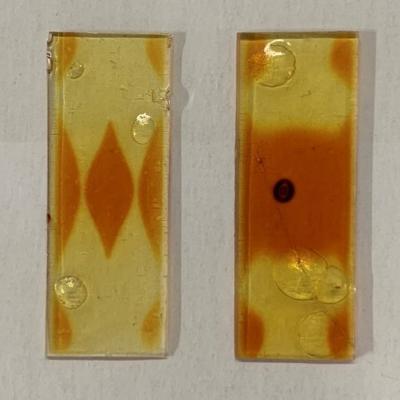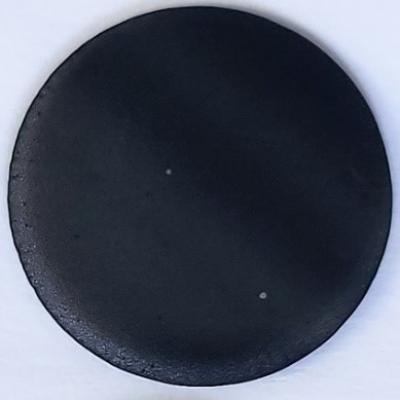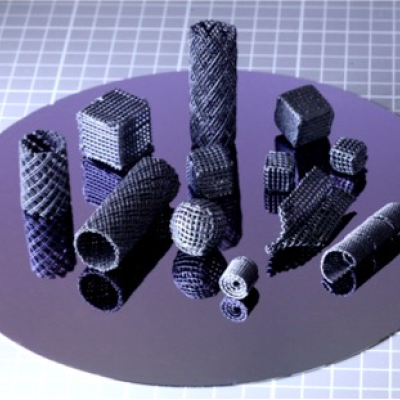LLNL researchers have developed a novel photocurable silicone useful for producing three-dimensional objects via additive manufacturing. The resin formulations consist of a mult-component siloxane polymers with different functionalities, a platinum catalyst, a photoinitiator, and other organic peroxides. The LLNL invention involves controlling the spatial and temporal aspects of the…

LLNL researchers have developed an innovative and uniform single-pot polymer multi-material system, based on a combination of 3 different reactive chemistries. By combining the three different constituent monomers, fine control of mechanical attributes, such as elastic modulus, can be achieved by adjusting the dosage of UV light throughout the additive manufacturing process. This…

LLNL researchers have developed a method to incorporate gas phase synthesized graphene (GSG) as a unique additive in a UV-crosslinkable polymer formulation. The GSG is added by using a planetary mixer to obtain a homogenous suspension of GSG in polymer. The resulting formulation is highly stable and doesn't show signs of phase separation or solid sedimentation. The polymer formulation is then…

LLNL researchers have developed a custom formulated extreme low viscosity reactive silicone resin base modified with a temperature dependent thixotrope along with a modified catalyst package. The uncatalyzed composition is capable of accepting loadings of polymer microspheres sufficient to produce a cured bulk rubber that has a density as low as 0.3 g/cc, thus compatible with high-…

LLNL researchers have developed a novel method of 3D printing regular microstructured architectures and subsequent complex macrostructures from additively manufactured bio-based composite thermoset shape memory polymer composite materials. This technology for 3D additively manufactured parts utilizes up to a 4 axis control DIW system for fabricating bio based thermally cured epoxy based SMP…
